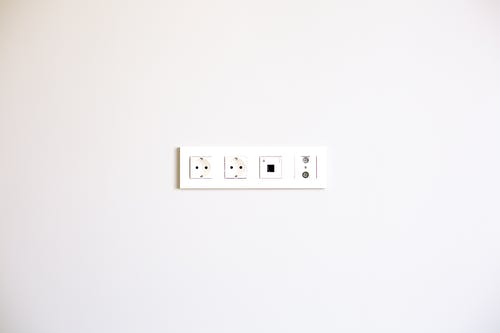Top Tips To Avoid an Overload in your Power Points
Overloads are dangerous. If your electrical system is working properly then it will simply cause the circuit breaker to trip. This shuts down the power to the circuit. You can turn it back on but it will trip again, unless you remove some of the load on the circuit.
Of course, if the circuit breaker isn’t working properly the overloaded circuit will continue to operate. This creates heat in the wires. The heat builds up surprisingly quickly and can cause surrounding objects, such as carpets and curtains to ignite.
You then have fire and need the emergency services. Electrical issues are the premier cause of house fires in the country.
The key is to avoid overloading your circuits.
Reduce Power Points
You should never have more than eight power points on one radial circuit. But, even if you don’t have more than the recommended amount per circuit, you may still be able to overload the wiring.
It’s the rating of the wring that is the most important issue. If it is rated lower than the circuit breaker the wiring can be in meltdown without the breaker tripping.
That’s why it’s a good idea to reduce the number of power points on each circuit. You can add in extra circuits. You will want to contact a qualified and reputable Sydney electrician to assist you with this.
Eliminate Extension Cables
There is no point in reducing power points if you will then rely on extension cables. An extension cable can turn one socket into four or more circuits. If you do this on a couple of sockets you will easily overload the circuits and cause issues for yourself.
Get rid of the extensions and plug everything into a wall socket.
If you don’t have enough or they are in the wrong place then you should talk to your electrician about adding more and moving some around, if necessary.
It’s simple and much safer.
Check What You Have On
You should know the approximate wattage of each appliance in your home. This will allow you to calculate which items are on and which circuits they are plugged into. By separating them and plugging different appliances into different circuits you’ll reduce the risk of overloads.
Get Your Annual Inspection
It’s a good idea to have an annual inspection of your electrical systems. This will help you to be aware of any wiring issues which could increase the risk of overloads and fires.
Your electrician can also advise regarding the draw of each circuit and what appliances should, or shouldn’t be plugged in at the same time. A little education can be useful when preventing overloading at home.
Add protection
Don’t forget, your circuit breakers are your first line of defense. If they blow there is a potential problem with that circuit. While one time is nothing to worry about, if it keeps happening you need to suspect overloaded circuits or an electrical wiring issue. That’s when you need to take action.

